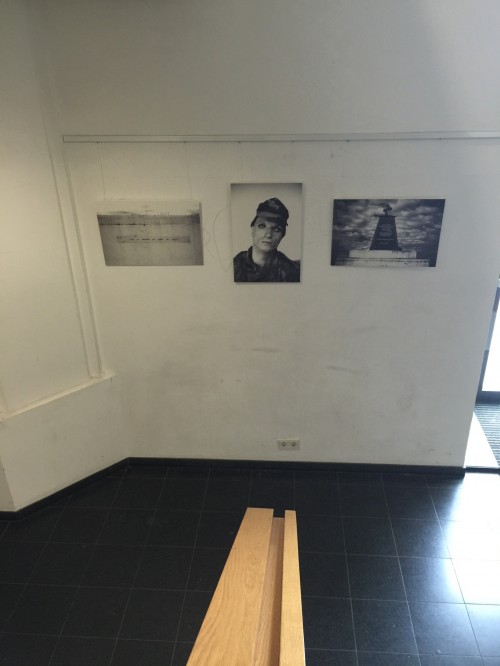The first public exhibition of photographs, presentation of the publication “War of Memories” and the idea behind the published material on the kulturasjecanja.org/en/ website was organised in Vienna on 8 and 9 April 2016. The presentation was accompanied by an exhibition of selected photographs, a panel discussion at the exhibition opening (8 April 2016) and a workshop about “War of Memories and Reconciliation” (9 April 2016). The whole event was organised by Brot für die Welt and Internationaler Versöhnungsbund (IFOR) from Austria, with the support of Österreichische Entwicklungs zusammenarbeit (Austrian Development Agency). The exhibition was set up at the Albert Schweitzer Haus in Vienna and will remain on display until 27 April 2016.

Speaking at the opening of the exhibition, apart from us from CNA (Ivana Franović and Nedžad Horozović), there were also Jasmina Haračić from the Austrian Red Cross, Robert Streibel, a historian and publicist from Vienna and Pete Hämmerle from IFOR. The audience was diverse, apart from Austrians, there were also many people from the former Yugoslavia, people from the “diaspora”.
Most of the panel discussion was devoted to questions from the audience about the need for memory of war, lessons to be learned from the past, ICTY judgements for war crimes, the culture of memory and memorialisation, the current global situation, etc. It was interesting to hear and compare experiences from Austria after the Second World War and those from the former Yugoslavia, and to hear from people working on memory and dealing with the past that some processes in Austria are still on-going, some were started much later than in the Balkans, and some have been “completed”. Robert Streibel described an example he discovered while doing research about a military unit from the Second World War to whom a monument was dedicated in Austria, but he found that this unit was responsible for war crimes in Slavonia, something that is not discussed in the Austrian public even though so much time has passed. In this way, he vividly “combined” the two contexts and the topic of how we relate to the past and crimes from the past, making the issue both more complex, but also bringing it closer to those present.
The opening of the exhibition also featured the band Azrah, whose members are from Austria and our “diaspora” and who performed a few of “our songs” (Samo da rata ne bude, Par godina za nas), but the Austrians were clapping and humming as if they were also “theirs”.
In order to respond to the interest of a group of 15 people working on dealing with the past and other social activism in Austria, the next day we held a workshop about “War of Memories and Reconciliation” (to mention it once more). We exchanged opinions and experience about reconciliation, forgiveness and the right to forgiveness, guilt and responsibility, etc. We tried to introduce our methodology and approach to reconciliation and peacebuilding, primarily through the example of working with war veterans.

Returning home, we took with us a lot of support, but also heightened expectations of planned promotions and exhibitions in Sarajevo, Mostar, Banja Luka, Bihać, Belgrade, etc. at the end of this and the beginning of next year.